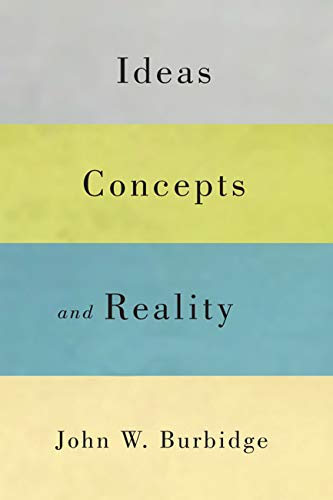

Most ebook files are in PDF format, so you can easily read them using various software such as Foxit Reader or directly on the Google Chrome browser.
Some ebook files are released by publishers in other formats such as .awz, .mobi, .epub, .fb2, etc. You may need to install specific software to read these formats on mobile/PC, such as Calibre.
Please read the tutorial at this link. https://ebooknice.com/page/post?id=faq
We offer FREE conversion to the popular formats you request; however, this may take some time. Therefore, right after payment, please email us, and we will try to provide the service as quickly as possible.
For some exceptional file formats or broken links (if any), please refrain from opening any disputes. Instead, email us first, and we will try to assist within a maximum of 6 hours.
EbookNice Team

Status:
Available5.0
19 reviews
ISBN 10: 0773541276
ISBN 13: 978-0773541276
Author: John W. Burbidge
Do concepts exist independently of the mind? Where does objective reality diverge from subjective experience? John Burbidge calls upon the work of some of the foremost thinkers in philosophy to address these questions, developing a nuanced account of the relationship between the mind and the external world. In Ideas, Concepts, and Reality John Burbidge adopts, as a starting point, Gottlob Frege's distinction between "ideas," which are subjective recollections of past sensations, and "concepts," which are shared by many and make communication possible. Engaging with Aristotle, Descartes, Kant, Hegel, and many others, the book argues that concepts are not eternal and unchanging, as Frege suggested, but open to revision. We can move from ideas to thoughts, Burbidge suggests, that can be refined to the point where they acquire independent and objective status as concepts. At the same time, they are radically connected to other concepts which either complement or are differentiated from them. Ideas, Concepts, and Reality offers a fresh perspective on the ways in which rigorous thought differs from other operations of the mind. Daringly inventive and accessibly written, the book will appeal to philosophers at all levels of interest.
PART ONE: From Ideas to Concepts
Frege and Psychologism
From Sensations to Ideas: The Empiricists
How Ideas Emerge: Hegel
Language
From Retentive to Mechanical Memory
Thoughts and Descartes's Rules
Second Rule: Analysis and Definition
Third Rule: Synthesis and Unity
Fourth Rule: Comprehensiveness
Conceiving
PART TWO: Tendrils of Thought
Hegel's Logic
Syllogisms
Modus ponens et al.
Arguments from Analogy
Linguistic Variations
ideas, concepts, and reality
ideas of reality
ideas and concepts examples
are ideas about the nature of reality
concepts and ideas
Tags: John Burbidge, Concepts and Reality